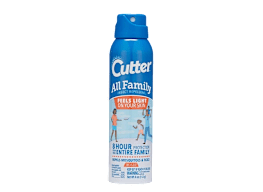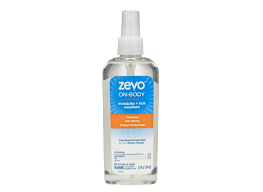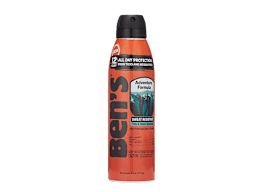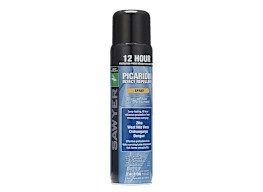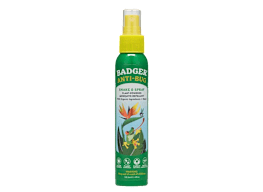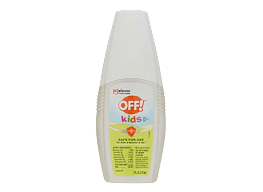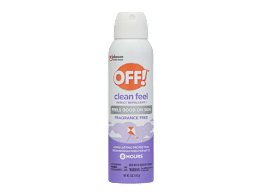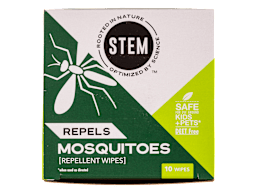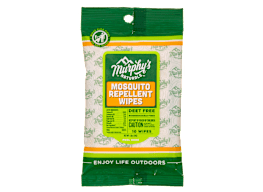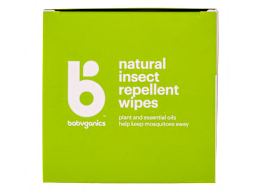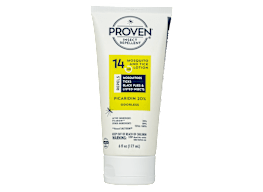Do 'Natural' Insect Repellents Work?
Bug sprays that rely on essential oils may seem like a tempting alternative to products that use other chemicals. But they probably won’t give you the best protection.
When you shop through retailer links on our site, we may earn affiliate commissions. 100% of the fees we collect are used to support our nonprofit mission. Learn more.
Many consumers love the idea of “natural” products. About 2 out of 3 people surveyed by the market research firm Mintel in June 2020 said they preferred to use natural pest control and insect repellent products whenever possible.
But 66 percent of those surveyed said that the performance or reliability of a pest-control product or bug repellent was more important than the fact that it had natural ingredients.
It’s not always easy to achieve both of those objectives—a high-performing insect repellent that also uses what people think of as natural ingredients—in one bug spray. In CR’s insect repellent testing, one active ingredient derived from a plant (oil of lemon eucalyptus) and one active ingredient synthesized to mimic a chemical in a plant (picaridin) show up in some of our recommended repellents.
Oil of Lemon Eucalyptus (OLE)
What is it? It’s important not to confuse this product with lemon eucalyptus oil, which is an essential oil. The names are very similar, but the two chemicals are quite different. Oil of lemon eucalyptus is an ingredient derived from a tree native to Australia known as lemon-scented gum (among other names). The active component of oil of lemon eucalyptus—the one that repels the bugs—is called p-menthane-3,8-diol, or PMD. OLE can be made by refining extracts of lemon-scented gum trees, and PMD can also be synthesized chemically.
Lemon eucalyptus oil, the essential oil, is an input in the manufacturing of OLE in some cases and is distilled from the leaves and twigs of the lemon-scented gum tree. Before it’s refined into oil of lemon eucalyptus, it contains several botanical substances such as citronella but only a very low and variable amount of PMD.
Does it work? In our insect repellent testing, 4 out of the 8 products we’ve evaluated that contain 30 percent oil of lemon eucalyptus earn our recommendation, providing 5 to 7 hours of protection against mosquito bites.
Is it safe? The EPA classifies PMD as a biopesticide, which means it’s subject to more safety testing than botanicals (see below), including lemon eucalyptus oil, but less testing than synthetic chemicals like deet and picaridin. Both federal regulators and our experts agree that oil of lemon eucalyptus is safe when used as directed.
OLE isn’t quite as well studied as some other repellent ingredients. But the research we do have suggests that any adverse reactions are limited to eye and skin irritation. OLE shouldn’t be used on children younger than 3, in part because research is lacking on oil of lemon eucalyptus in young children. (Deet and picaridin are both considered safe to use on children older than 2 months.)
Picaridin
What is it? Strictly speaking, picaridin isn’t a plant-derived ingredient; instead, it’s synthesized chemically. But its chemical structure mimics that of a compound found in pepper plants. It has been available as an insect repellent in the U.S. since 2005.
Does it work? Some bug sprays containing 20 percent picaridin have done well in our tests, but its performance in other formats is less impressive. A wipe version and two lotions made with that concentration scored poorly (as did one wipe containing 10 percent picaridin). It’s unclear from our testing why picaridin appears to perform better as a spray, but skipping the wipe or lotion formulations of this ingredient is probably wise. Although one spray with 10 percent picaridin earned our recommendation, another one didn’t, so we suggest sticking to sprays with a concentration of 20 percent.
Is it safe? Picaridin may cause eye and skin irritation, but this is probably rare. In one analysis of poison control calls related to insect repellents, picaridin caused only a few problems, and almost none of them required a visit to a doctor’s office or an emergency room.
Botanicals
What are they? Botanical repellents, which often have “natural” on the label, can include any number of plant-based chemicals. Some common ones are lemongrass, citronella, peppermint, geraniol, soybean, and rosemary.
Do they work? These products aren’t registered with the EPA. Because the agency doesn’t consider the chemicals they contain to pose any serious safety risks, it doesn’t evaluate them. As a result, the companies that make botanical products aren’t required to prove to federal regulators that they actually work.
Some plant oils have the ability to keep bugs away, research shows. So in that sense, they do work. The problem is that most of these oils tend to evaporate quickly, which means they don’t work for very long. CR’s testing, for example, has repeatedly found that products with essential oils as the active ingredients don’t repel bugs as long as many products with deet or some with OLE or picaridin. Our recommended repellents provide 5 or more hours of protection, while our lowest-rated ones, which include those with essential oils as active ingredients, provide just 2 hours or less of protection.
Are they safe? Yes and no. The chemicals in these products are unlikely to cause you any serious harm themselves, though they do contain known allergens, often at much higher concentrations than other natural products. But by using an unregistered botanical repellent, you expose yourself to the risk of serious mosquito- and tick-borne diseases, some of which can be life-threatening.
The Lowdown on Insect Repellents
Bug bites are annoying, and they can also transmit diseases. On the “Consumer 101” TV show, host Jack Rico goes inside Consumer Reports’ labs to find out how CR tests insect repellents to make sure you’re getting the most protection.
Editor’s Note: This article has been updated with new information.
Jeneen Interlandi contributed reporting.


